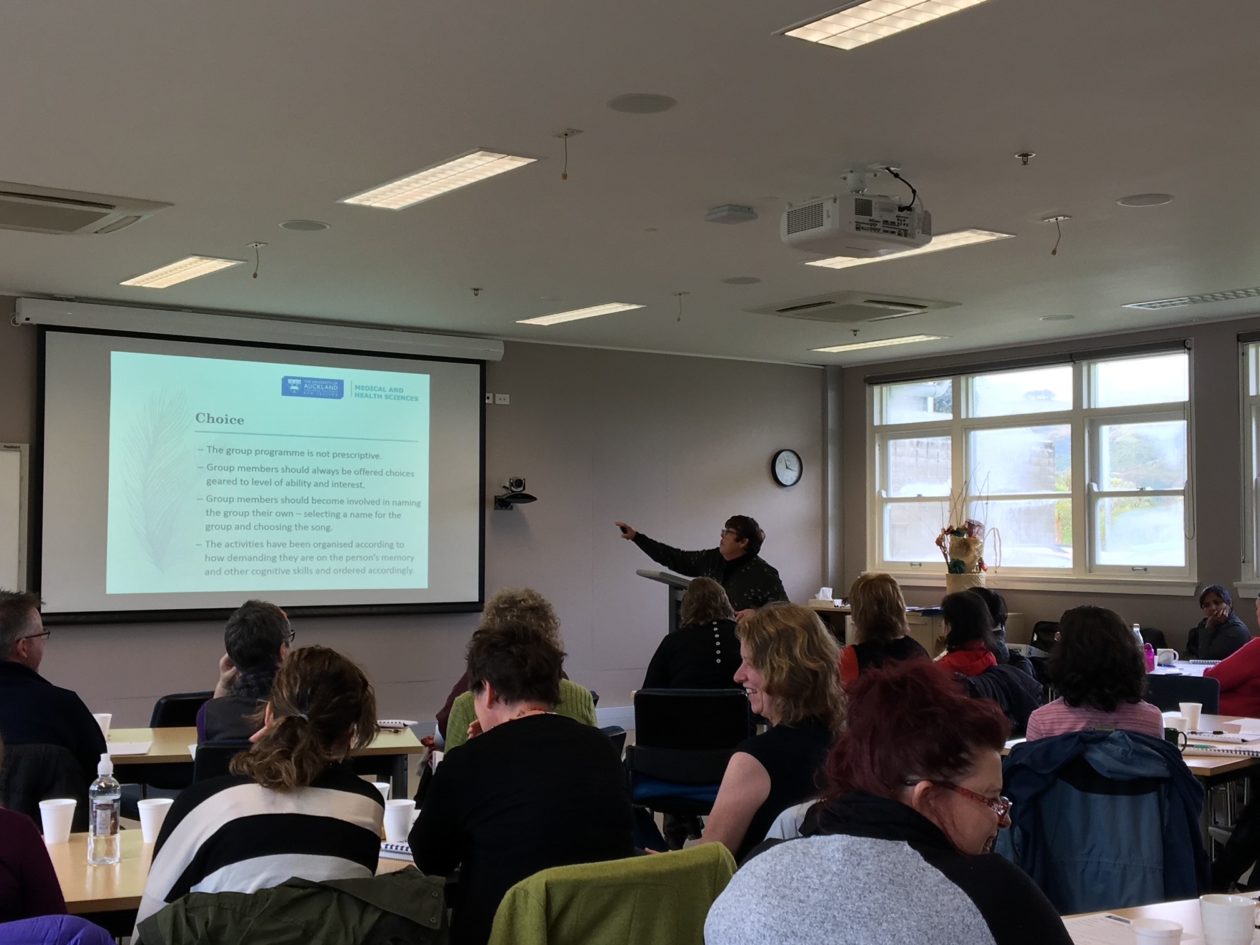Celebrating 10 years of Cognitive Stimulation Therapy

A once relatively unknown evidence-based, non-pharmacological intervention is celebrating 10 years of improving the quality of life for New Zealanders with mild to moderate dementia.
Developed in the UK and later adopted in at least 38 countries, a Cognitive
Stimulation Therapy (CST) feasibility study was conducted in Aotearoa New Zealand in 2013/14 with support from Te Pou.
So well-received was it by participants, one wrote a letter to the facilitators detailing the benefits they, and the therapy group they were a part of, experienced. The author also pleaded for the trial’s extension.
“The course is of huge benefit and we beg for your compassionate consideration that it may continue into the future,” the letter reads.
The structured treatment programme runs twice weekly across seven weeks, stimulating participants’ minds in an optimal learning and social group environment.
As the institutors of CST programmes in Aotearoa New Zealand, Dementia Learning Centre Director Dr Kathy Peri and School of Medicine Associate Professor at the University of Auckland Dr Gary Cheung, couldn’t be prouder of their 10-year journey.
“Before there was widespread knowledge of CST in New Zealand, people with dementia were encouraged to participate in socialisation and activity groups – which can be beneficial,” Dr Cheung says.
“But, other than in Hawke’s Bay in the early days, there was no nationwide treatment available with this same level of scientific evidence.”
The pair have trained hundreds of CST facilitators over the past decade, many of whom have gone on to run their own CST programmes to improve many New Zealanders’ cognitive and social functioning.
They continue to host CST training workshops in Aotearoa New Zealand and are now planning to support the training in Australia, too.
“There weren’t a lot of treatment options for people diagnosed with dementia – they were often told to get their affairs in order,” Dr Peri says.
“But now, CST has changed the focus of care for people with dementia and is a viable treatment with so many benefits.
“We know, thanks to feedback from facilitators that we’ve trained and mentored, that they have found the programme has made a significant difference in a lot of people’s lives.”
The evidence also speaks volumes; the size of CST’s effects to improve cognition is similar to currently available anti-dementia drugs. It can also improve well-being.
Drs Peri and Cheung collaborated with Dr Makarena Dudley and Tai Kake, of the University of Auckland-Waipapa Taumata Rau, to adapt the therapy for Māori since 2019. Last year, Alzheimers New Zealand partnered with Dr Dudley to disseminate CST-Māori.
Dr Dudley has also been working Dr Peri to train Māori CST facilitators and will soon help to deliver the adapted programmes.
Her adaptation of the CST programme for Māori will be launched at Te Mahurehure Marae, Point Chevalier, in Auckland next month.
To honour 10 years of CST programmes in Aotearoa New Zealand, CST-trained facilitators will be invited to celebrate their contribution to dementia intervention in three regional network meetings.
What is CST?
CST is a structured group therapy treatment for people with mild to moderate dementia. The therapy consists of 14 sessions with a range of activities and discussions aimed at the general enhancement of cognitive and social functioning.
The sessions actively engage people with dementia, while providing an optimal learning environment, and the social benefits of being part of a group.
CAPTION: Dr Kathy Peri training CST facilitators in the classroom

